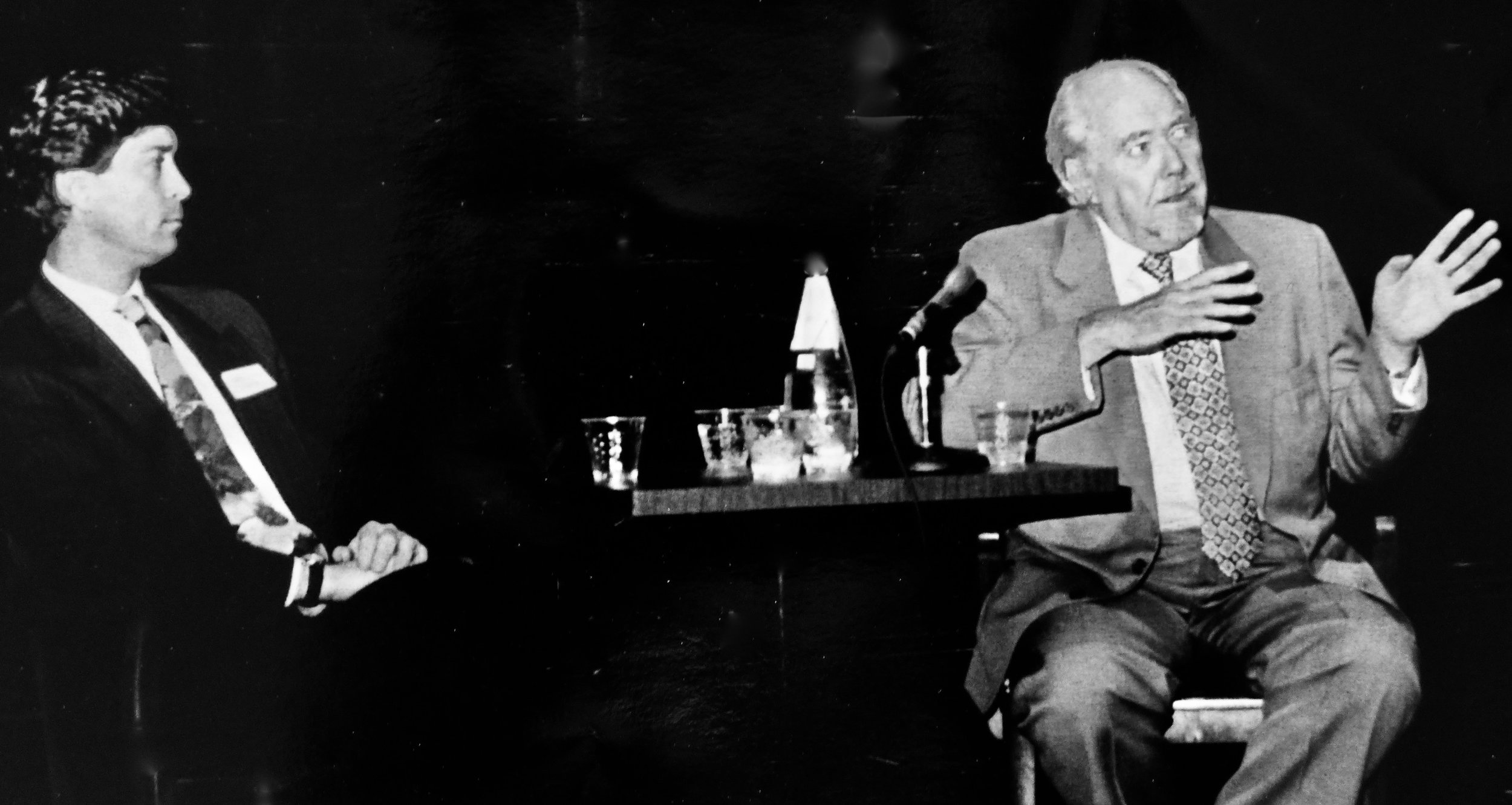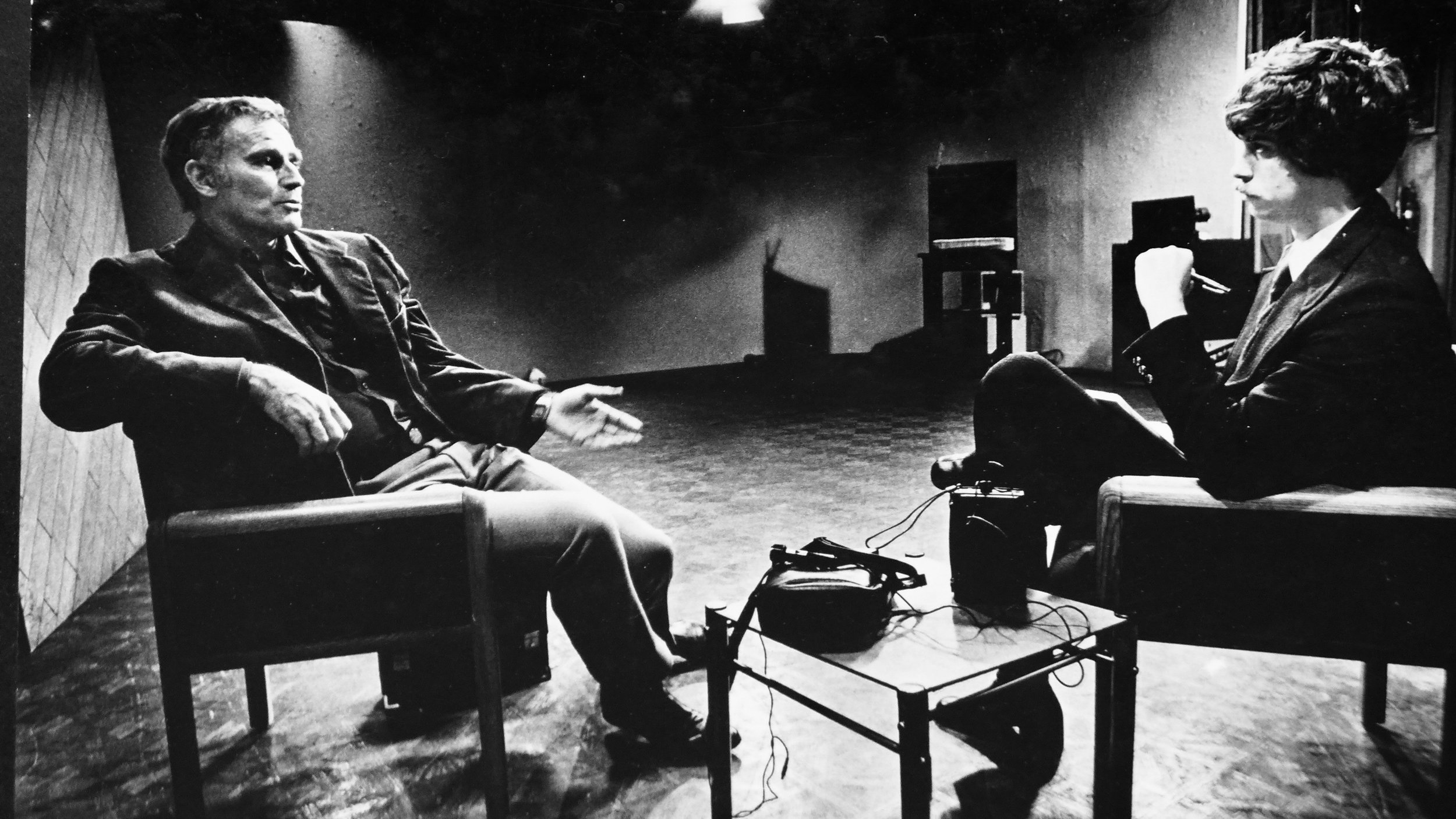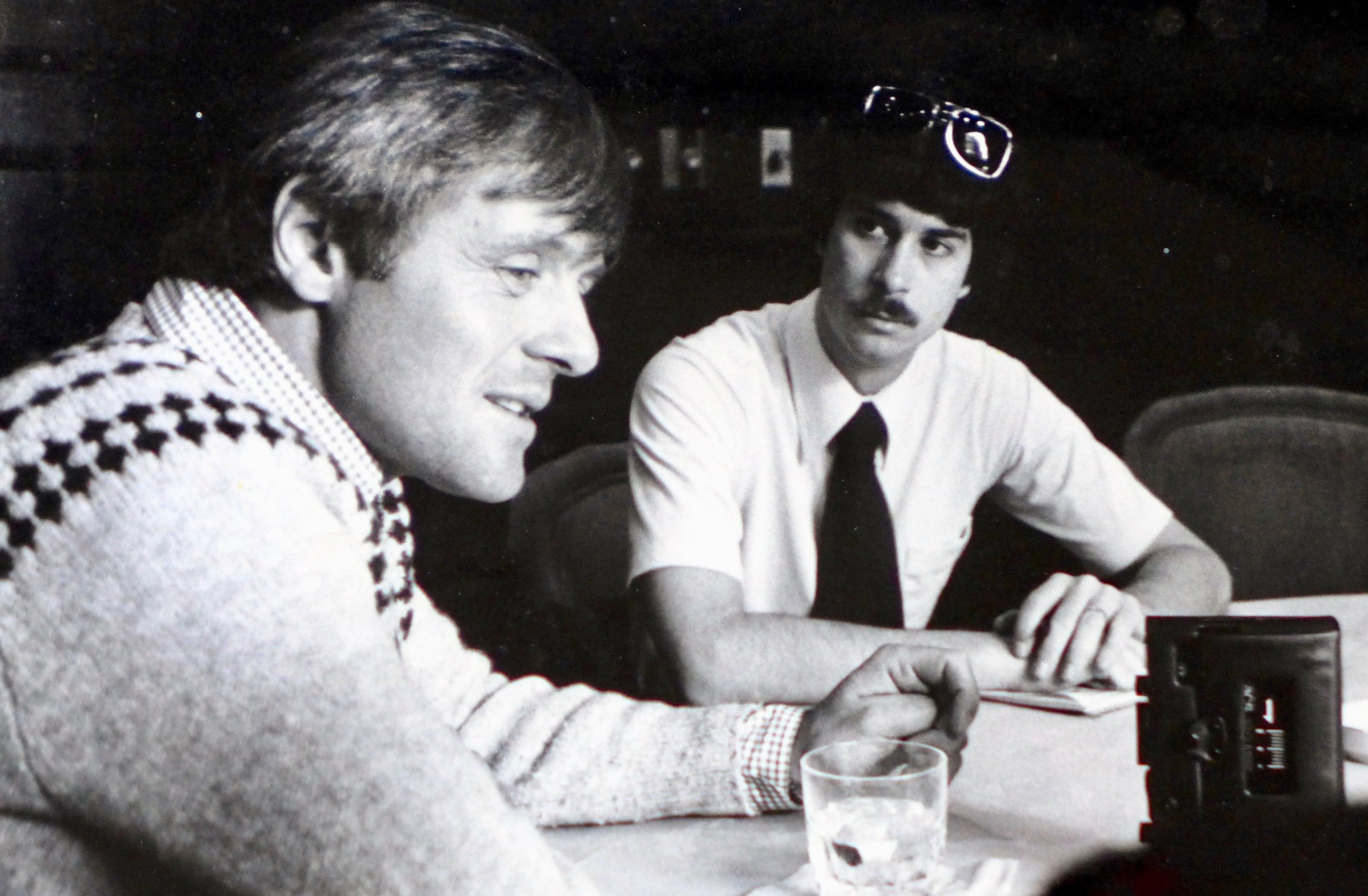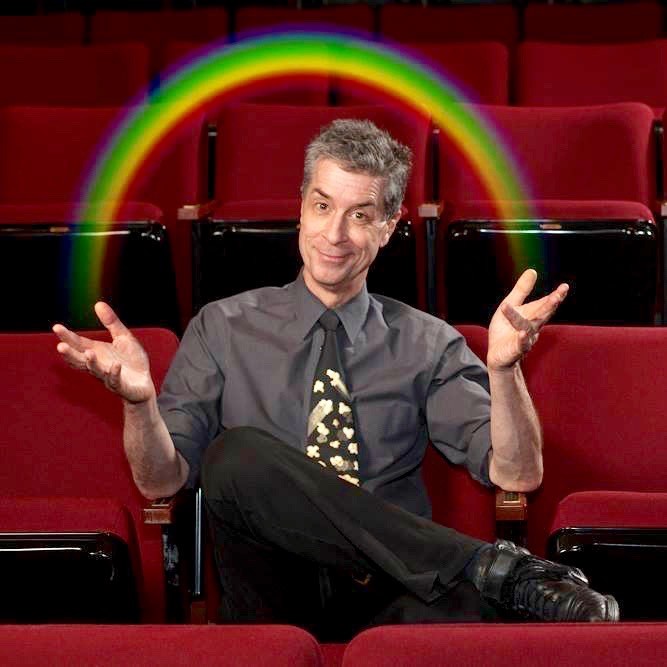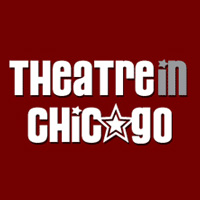DANN GIRE - Critically Speaking
The first reel of the two-reeler that tells the story of Dann Gire’s cinematic life, is spent largely in the dark confines of screening rooms and flickering images with a subplot emerging that has placed the opinions of the affable, knowledgeable and articulate film critic in the pages of the Daily Herald for over four decades, with students in college classrooms, at film seminars, lectures and screenings, on broadcast television and at the forefront of a movement to establish the Chicago Film Critics Association, a professional association that began in 1988.
Gire’s outstanding contributions to film and the broader category of arts criticism has garnered a 1999 Editorial Excellence Award from the Chicago Daily Herald, the 2011 Journalism Alumnus of the Year Award at Eastern Illinois University, in his hometown of Charleston, Illinois, where he earned his undergraduate and Masters Degrees, and, along the way, ten Peter Lisagor Awards for Exemplary Journalism in Arts Criticism. The Illinois Press Association awarded its First-Place Movie Review of 2018 to Gire.
In the second reel, the aperture of the lens is slowly opening to reveal a vast new landscape of viewing options that range from IMAX and 3-D to a handheld device that can capture images and opinions in real time. Positioned there in and among an ever-evolving group of professional writers and film aficionados whose careers have been dedicated to the poetry and art of moving images, Gire maintains a collegial approach to new and on-going professional relationships.
The true value of a film cannot be gauged on box office sales, star-ratings or online aggregators like Metacritic or Rotten Tomatoes. If it was, we may never have discovered works of art like My Dinner with Andre and Brazil.
Films like these bubble up in the minds of seasoned critics like Gire who sift through the sand for the pearls. PODCAST
Early Days… “The Times Courier hired me at 16. I covered a lot of the stuff for the high school and then I covered stuff for the community, car wrecks, meetings… got involved with the high school newspaper… later on at the Eastern Illinois University newspaper, The Daily Eastern News, as co-Editor-in-Chief… I'm one of those kids that basically took what I thought was a hobby and it became my professional life. … At the Daily Herald, I started out as a government reporter then became a crime reporter, then was elevated to the Metro Desk assigned to the Cook County Criminal Court. … Then they said we were going to hire a theater critic, a television critic and a movie critic. I applied for that and I got it. The day I got that job, I called into the office and the editor says: “You're going to be our new movie critic.” I called my wife and I said: “Honey, they just made me the movie critic!” and she says: ‘(pause) But you're not qualified.’ Yeah, pretty much echoed how I thought about it at the time, too. … That was four decades ago.”
Chicago Film Critics Association… “In 1981, I founded a group that no one ever has heard of—The Chicago Film Critic Circle—that lasted about two years and fell apart because we got the wrong people at the wrong time with the wrong talent base basically. …Along comes Sue Kiner who was working at a radio station in Chicago doing film stuff. She came up with the brilliant idea in 1988 to put together a professional film critics organization just like Los Angeles, New York, Boston … My group originally started out as an organization, but we really didn't have a purpose. Sue Kiner came up with the idea of Chicago Film Critics Awards. We were giving out awards before there was a not-for-profit behind it. Once we got a purpose, which was to put on a program at the end of every year, we had a cohesive group. Now we had all the leadership we needed. That group started in 1988. It continues to this day and not only have we gotten beyond the annual end-of-the-year giving out awards–Best Picture, Best Actor—we have created our own film festival. The Chicago Film Critics Film Festival, which comes out every year in May at the Music Box Theater, is the only motion picture festival I am aware of in North America that is curated entirely, and put on entirely, by film critics. I view it as one of the purest forms of selected material. Seriously. We come up with films that are the best of the best. I'm so proud of the group that follows me… I did relinquish the title of President after 22 years to Brian Tallerico who is a fine, upstanding, terrific critic for Ebert.com. So, we've got a whole generation … a wide variety of points of view from this group, from Ebert.com, from the Chicago critics… a vibrant community right here in Chicago that connects to all parts of the world. I'm astonished by everything in Chicago. I mean that. Not just film. You have got all performing arts. Fine arts. You have got art. It's a great community to be a part of. We even have another group called “The Chicago Independent Film Critics” that started up. And my attitude is they are not our competitors. This is part of a community group. If you want to have five or six groups of film critics, hey, knock yourself out. I view them as allies. I don't view them as competition. I have been really happy that we actually inspired, in some way, another group of film critics.”
Influence of Ebert and Siskel… “When we had Ebert and Siskel in power, at the full height of their talent and their exposure, we had everything. Instead of being a flyover city that we had been for decades, now we were the hub of Hollywood's interest because of that television show. So as a byproduct, all the other critics, myself included, got benefits by having a lot of the movies we would never have seen, or never seen as quickly, had it not been for Gene and Roger. Now, the downside of that, in my view, was that Gene and Roger were fiercely competitive. I'm sure you remember those guys. Fiercely competitive. And that competition permeated the entire screening room. This was back in the days when we were watching movies on the seventh floor of the Chicago Theater building. … It was like a library in a cemetery because Gene and Roger could not talk to each other about the movies because they wanted everything to stay fresh for their television show, which makes perfect sense. You couldn't talk to them about it and you couldn't talk to each other about it, about movies or anything, because they were within earshot. Then that made a lot of sense. It sounded like a lot of snobbery. It wasn't. It was that they didn't want to hear anyone else's opinion because then if that popped up on their show that looks bad. They didn't want to volunteer anything they wanted to say about the movie before everybody reviewed it either. That made practical sense, but the byproduct of that was it was a very cold and isolating atmosphere to go in every day to the screening room and just be quiet the whole time.”
Critically Speaking… “Essentially critics love to discuss films. They love films. That's why they are critics. It's a natural thing for them to want to express themselves and to engage with other critics, just like Gene and Roger did on their weekly television show. This was one of the things that I made a paramount priority when we formed the Chicago Film Critics Association. It was to be a community of critics. It was to actually inspire the art of discussion and conversation between critics…. To this day, the legacy of the Chicago Film Critics Association is that we now have a community of critics because now you can't walk into the screening room without people debating things, talking to each other, sharing information, sharing disks, DVDs with each other, tidbits, tips and all that. I think of all the accomplishments that have ever happened with the Chicago Film Critic Association, the one that I clearly am most proud of is the fact that we are no longer in an isolated quiet zone. It is now a fricking war zone of words.”
Seeing Stars… “A review is a written piece. It is an essay. Ebert was a master essayist and he didn't understand why we had to worry about the stars. It was too simplified. So, he convinced his bosses—almost convinced his bosses—at the Sun-Times to eliminate that. Then along comes this upstart Gene Siskel at the Tribune and he is using the stars. So, then (Ebert) was forced to use the stars and continue to use them. And, of course, that's just become a hallmark in the film review industry.”
One Simple Goal… “What is the essence of a critique? It has nothing to do with the box office appeal of a motion picture. Nothing to do with its popularity. It has to do with one simple goal: determine the value of the work. That's it. That's the job of a movie critic or any critic. What is the value of the work? And that value is sifted through the individual prism of who you are as a writer, or a broadcaster, or a communicator because the perspective you take on that work—whether it's a film, a piece of art or a television show—is your perspective and that is filtered through who you are. Your personality. Your sense of humor. Your culture. Your sexuality. Your politics. Everything that makes you is the prism that you filter everything through when you evaluate a work of art. That is why the older you are and the more experienced you are, amazingly, the better critic you are. …Roger Ebert, and all the terrific critics, are experts at this. They share a discussion with you. They are not telling you what it is. They are sharing their views. You are part of the discussion.”
Comments have been edited for length and clarity.
CHICAGO FILM CRITICS ASSOCIATION
DANN GIRE - TWITTER
PODCAST available on Apple Podcasts, Libsyn, Stitcher, IHeartRadio and Radio.com App
ARCHIVE DE USURIS BLOG EMAIL WEBSITE SUBSCRIBE



